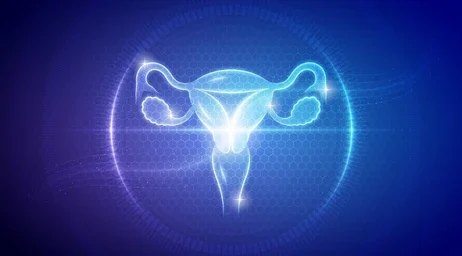The Role Of The Gynecologist: Women’s Health Advocates
Gynecologists play a pivotal role in women’s healthcare, serving as advocates for their patients’ reproductive health and overall well-being. Beyond providing medical treatment, gynecologists serve as trusted advisors, educators, and allies, empowering women to take control of their health and make informed decisions throughout their lives. This article explores the multifaceted role of gynecologists as women’s health advocates, highlighting their responsibilities, challenges, and impact on patient care.
Advocates for Reproductive Health
Gynecologists are at the forefront of reproductive health care, providing a wide range of services to women of all ages. From routine gynecological exams and contraceptive counseling to prenatal care and menopause management, gynecologists address the diverse reproductive needs and concerns of their patients. They play a crucial role in promoting sexual and reproductive health by offering preventive care, screening for sexually transmitted infections (STIs), and discussing family planning options.
Educators and Information Providers
One of the primary responsibilities of gynecologists is to educate their patients about their bodies, reproductive health, and healthcare options. Gynecologists provide information on topics such as menstrual health, fertility awareness, contraceptive methods, and sexually transmitted infections. They empower women to make informed decisions about their health by explaining the benefits and risks of various treatments and procedures and addressing any questions or concerns they may have.
Partners in Preventive Care
Preventive care is a cornerstone of gynecological practice, aimed at detecting potential health issues early and promoting overall wellness. Gynecologists perform routine screenings, such as Pap smears for cervical cancer, mammograms for breast cancer, and bone density scans for osteoporosis. They also provide vaccinations, such as the HPV vaccine, to prevent certain infections and cancers. By emphasizing the importance of preventive care and regular screenings, gynecologists help women maintain optimal health and well-being.
Advocates for Sexual Health and Wellness
Gynecologists are advocates for sexual health and wellness, promoting healthy relationships, sexual consent, and safe sexual practices. They provide comprehensive sexual health education and counseling, addressing topics such as contraception, sexually transmitted infections, and sexual dysfunction. Gynecologists also offer support and guidance to survivors of sexual violence and abuse, helping them access resources and services for healing and recovery.
Allies in Pregnancy and Childbirth
During pregnancy and childbirth, gynecologists serve as trusted allies and partners, guiding women through the journey of motherhood. They provide prenatal care, monitor fetal development, and address any concerns or complications that may arise during pregnancy. Gynecologists also offer support and assistance during labor and delivery, ensuring the health and safety of both mother and baby. Through compassionate care and expertise, gynecologists help women navigate the challenges and joys of pregnancy and childbirth.
Champions of Menstrual Health and Wellness
Gynecologists are advocates for menstrual health and wellness, addressing common menstrual disorders such as irregular periods, heavy bleeding, and menstrual pain. They provide evaluation and treatment options to manage these conditions, including hormonal therapies, nonsteroidal anti-inflammatory drugs (NSAIDs), and lifestyle modifications. Gynecologists also educate their patients about menstrual hygiene practices and menstrual cycle tracking, empowering them to understand and manage their menstrual health effectively.
Supporters of Menopausal Health
As women transition into menopause, gynecologists play a vital role in supporting their health and well-being during this phase of life. They provide guidance and treatment options for managing menopausal symptoms such as hot flashes, night sweats, vaginal dryness, and mood changes. Gynecologists also address long-term health concerns associated with menopause, such as osteoporosis and heart disease, and offer strategies for reducing risk factors and promoting overall wellness.
Challenges and Opportunities
While gynecologists play a crucial role in women’s healthcare, they face challenges in addressing complex issues such as reproductive rights, access to care, and health disparities. Advocating for equitable access to healthcare services, promoting reproductive autonomy, and addressing social determinants of health are ongoing priorities for gynecologists. Additionally, advancements in technology, research, and medical education present opportunities for gynecologists to enhance patient care, improve outcomes, and advance the field of women’s health.
Conclusion
Gynecologists are more than healthcare providers; they are advocates for women’s health and well-being. Through their expertise, compassion, and dedication, gynecologists empower women to make informed decisions about their reproductive health, navigate life’s transitions, and achieve optimal wellness. By serving as educators, allies, and champions of women’s health, gynecologists play a vital role in promoting gender equity, advancing reproductive rights, and ensuring that women have access to the care and support they need to thrive.








